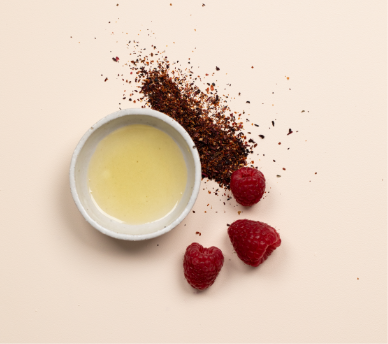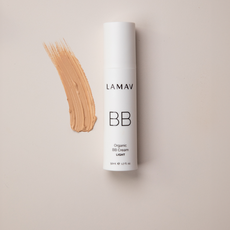Vitamin C in Skincare
While being one of the most popular and well-known vitamin of all, vitamin C is not only super important as part of your diet or taken as a supplement, but it can also do wonders for your skin, according to numerous studies conducted in the past few decades, which is the reason why it is so popular among manufactures of cosmetics. And believe me – it is not just another myth supposed to make you buy one more product that is an absolute “must-be-part-of-your-skincare-regimen”. It is indeed an incredibly beneficial substance that has the potential to literally revive your cells and your skin.
Why Is Vitamin C Used in Skincare?
Vitamin C, or ascorbic acid, is a potent antioxidant known for its ability to neutralize free radicals, protect the skin from environmental stressors, and promote collagen synthesis. While it’s essential in your diet, its topical application can deliver targeted skincare benefits.
Unlike many skincare trends, Vitamin C’s benefits are backed by decades of dermatological research. It’s widely used by dermatologists, estheticians, and cosmetic scientists due to its ability to:
-
Brighten dull skin
-
Fade dark spots and hyperpigmentation
-
Support collagen production
-
Improve skin elasticity
-
Reduce the appearance of fine lines and wrinkles
-
Defend against sun damage and pollution
4 Proven Benefits of Vitamin C in Skincare
Vitamin C offers four standout benefits that make it a skincare essential. As a powerful antioxidant, it protects the skin from free radical damage caused by UV rays and pollution. It helps fade pigmentation and sunspots, leading to a brighter, more even complexion. Similar Content: Vitamin C: Everything you need to know. Vitamin C also boosts collagen production, improving skin firmness and reducing fine lines. Additionally, its anti-inflammatory properties help calm redness and strengthen the skin barrier, making it ideal for sensitive or acne-prone skin. Here are some benefits:
1. Antioxidant Protection from Free Radicals
Since vitamin C is one of the most powerful antioxidants in nature, vitamin C skin care products protect your skin from free-radicals that damage your cells and affect the overall condition and appearance of your skin, thus keeping it healthy and in good condition.
2. Fades Sun Damage and Pigmentation
Vitamin C reduces UVB damage which means it can be of help to people struggling with hyperpigmentation induced by sun exposure (the so called “sun spots”). It also helps in the fight with premature aging, especially if caused by spending too much time under the warm rays of the sun (yes, we all love it, but if you want youthful good-looking skin sun exposure should always be in moderation).
3. Stimulates Collagen Production
The biggest benefit of vitamin C (in vitamin C skin care products) is promoting collagen synthesis. Collagen, as most of you know, is responsible for the elasticity and firmness of your skin. Boosting the collagen production inevitably leads to toned, smooth and radiant skin. Battling the wrinkles has never been so easy as when you try incorporating some vitamin C containing products in your skin care routine – give it a go and you’ll see for yourself!
4. Soothes Inflammation and Strengthens the Skin Barrier
Last but not least, vitamin C also helps in reducing inflammations (a huge plus for people with acne) and strengthens the skin’s barrier. Vitamin C has anti-inflammatory properties that make it ideal for sensitive or acne-prone skin. It helps calm redness, promote healing, and support the skin’s natural barrier, improving overall texture and resilience.

Which forms of vitamin C are used in cosmetics and which ones actually work?
As it often happens in the cosmetic industry (I believe not only there, but in any other industry) companies try to cut on costs as much as possible to assure higher profits. This leads to using inexpensive ingredient, that are, not always as effective as they claim to be (or in some cases are not effective at all). Here it is very important to educate customers and list the forms of vitamin C they should be looking for on the back of the label. Effectiveness is directly related to what’s in your products, you should never forget that! The most popular and widely used forms of vitamin C, that are proven to do what they have to, are: ascorbyl tetraisopalmitate, ascorbyl palmitate, magnesium ascorbyl phosphate ,ascorbic acid, L-ascorbic acid, sodium ascorbyl phosphate, retinyl ascorbate, tetrahexyldecyl ascorbate. Have in mind that each form has different stability and active potential, but they are all proven to work, by numerous scientific studies, which can be considered a guarantee that what you are buying is actually good for your skin. If you see any of these names at the back of the packaging, you can go ahead and buy the product you have picked. The results won’t be late – you can have my word for that.
The packaging also matters:
Another thing you have to pay close attention to when you buy vitamin C skin care products is the packaging. Vitamin C (even the most stable form available on the market) easily oxidizes in presence of air and light. Avoid see-through glass packaging and ones that are not well-sealed, to ensure that your products keeps its beneficial properties as long as possible.
If you liked this post, let us know by sharing it!











